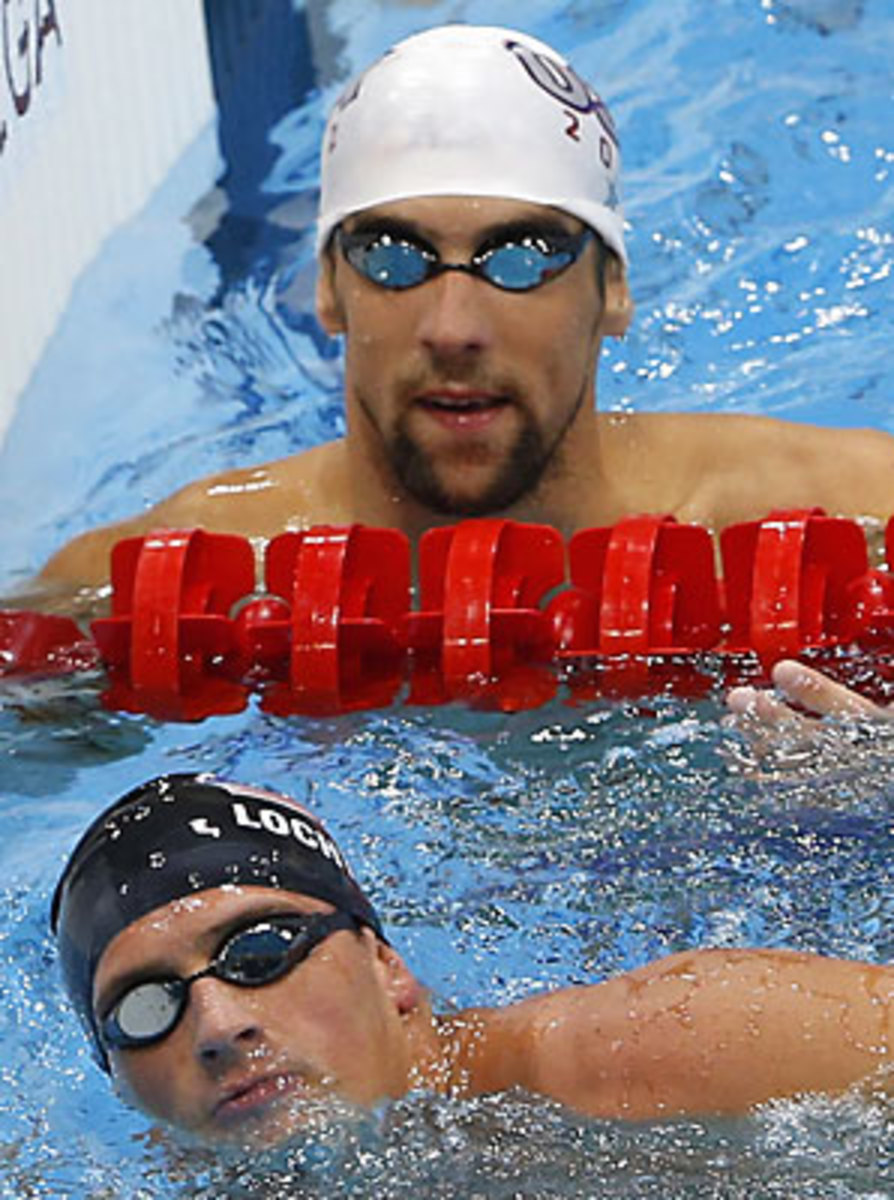Lochte only wants gold, Federer considers Rio; more Olympic notes
It's on. Though it isn't quite a war of words, Ryan Lochte showed off some confident sentiments during his swimming press conference on Thursday. "This was just an appetizer," Lochte said of his performance at the Olympic trials in Omaha last month. "I know I can go a lot faster . . . I'm not going for silver or bronze." Surely that sounds like a man who is aiming to cut down a 14-time champ like Michael Phelps, who admits these Olympics are "more emotional than usual," because they will be his last. Bob Bowman, the coaching brains behind Phelps' historic success, singled out his swimmer's much-improved turns as his greatest area of newfound strength.
Australian sprint swimmer James Magnussen will be trying to take down Brazilian star Cesar Cielo in two races. Cielo is considered a favorite in the 50-meter freestyle, with Magnussen having a slight nod in the 100 free. "The biggest competition for me will be my head space," says Magnussen. "I know the pressures back home. I know Cesar holds both world records, but I'm in position to win this one . . . I'm here to win gold; not break a world record. If you're going to leave a legacy in the sport, that's what you have to do."
Just when some thought Roger Federer's best days may have passed him by, the tennis great played some of his best tennis in winning the singles title at Wimbledon. Now, with an Olympics staring him in the face at the very same Centre Court, he is talking about doing another one four years from now in Rio. "There are so many moving parts," says the seven-time Wimbledon champion. "They also have a role in the decision making, but the mind still wants to play." Federer has never won the Olympics singles title, though he does have a gold medal in men's doubles.
Though she acknowledges that the team across the pond is the Olympic favorite, Beth Tweddle, Britain's most accomplished female gymnast, isn't conceding the team gold medal to the squad from the U.S. just yet. It wasn't that long ago that teams could throw out their worst score, making upsets less likely than they are now. "They are touchable," says Tweddle, 27, "especially with the three-up, three-down. Anyone can hit or miss." Tweddle, a five-time world medalist, mentioned China, Russia and Romania as other strong teams that could contend for gold, with the home Brits trying to move up from fifth.
She will be a deserving flag bearer at the opening ceremony in London on Friday, but you should also know this about two-time sabre fencing gold medalist Mariel Zagunis: she doesn't need to be a favorite in order to win. In 2004, Zagunis only got into the competition because a Nigerian fencer declined to accept her qualification spot. In 2008, Zagunis was only ranked sixth entering the tournament. This year, she will be the favorite, but she'll first be awed by an opportunity that she says is "the biggest moment of my life. To have other teammates from other sports vote me is the best honor I can think of."
There is still great secrecy about the final torchbearer in Friday's opening ceremonies, but the Brits have announced the cyclist Chris Hoy will carry the Union Jack during the ceremony. Hoy was a gold medalist in the time trial at the 2004 Games in Athens and a triple gold medalist at the Beijing Games four years ago. And you can also look for Caster Semenya at the ceremonies, since she'll be carrying the South African flag. Semenya, 21, became a controversial flashpoint at the world championships in 2009, when she won gold in the 800 meters and was asked to undergo a gender test by the sport's international governing body. Basketball star Lauren Jackson will carry the Australian flag.
It isn't true that brothers have to do everything together, but when the U.S. tennis team showed up for its pre-meet press conference on Tuesday, just two players were stuck in processing because they failed to get their credentials validated. They would be Bob Bryan and Mike Bryan.
Yes the tennis team will be staying in hotel rooms rather than the less-plush Olympic village, but Serena Williams doesn't want to imply that she and her teammates don't appreciate the Games. "Of every tournament I've won, I've enjoyed my gold medal the most," she says."
Though many athletes may receive bonuses for Olympic medals from their national Olympic committees, national governing bodies and well-to-do sports-minded benefactors, the U.S. shooting team has an unusual and clever reward system that encourages team members to pull for one another. For instance, U.S. shooters who win medals in London will earn a minimum of $30,000 for gold, $15,000 for silver and $9,000 for bronze, in addition to the $25,000, $15,000 and $10,000 offered by the U.S.O.C. However, if a second U.S. shooter also wins a medal, the amount won by each shooter increases to $40,000, $20,000 and $12,000. Those number keep increasing up to a maximum of six medals, in which case gold medalists would earn $80,000, silver medalists would get $40,000 and bronze medalists would earn $24,000. That's a way to encourage team building.






